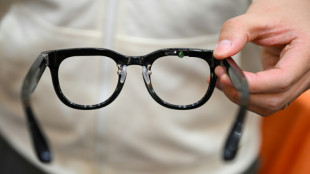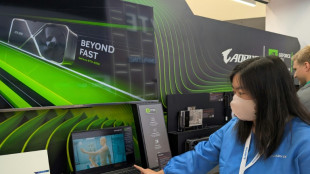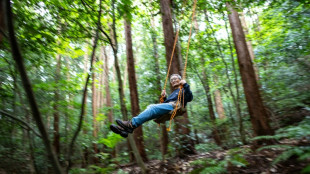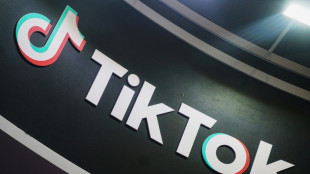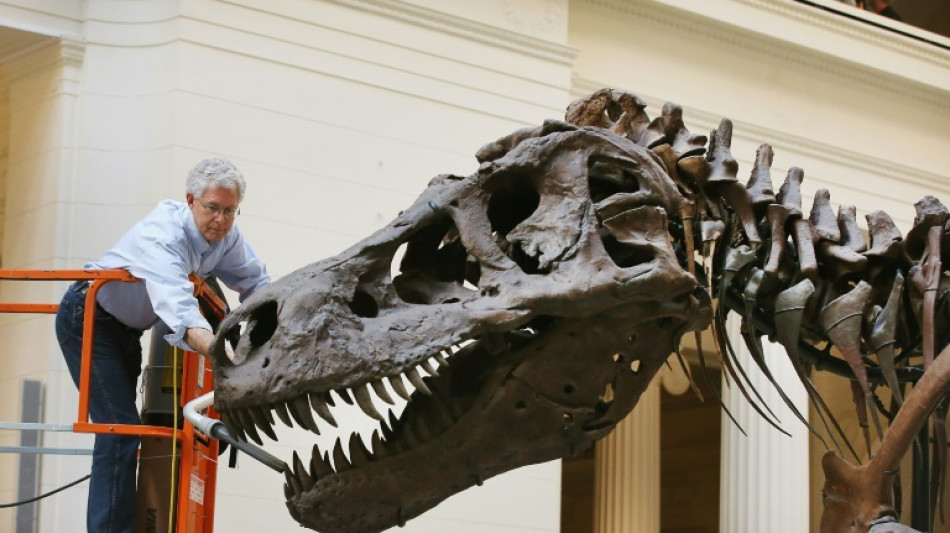

T-Rex skeleton to go under hammer in Switzerland
A Tyrannosaurus-Rex skeleton dating back 67-million years will be auctioned in Switzerland next month, marking the first such sale in Europe, the auction house said Saturday.
The skeleton dubbed Trinity will go under the hammer in Zurich on April 18, the Keller auction house said.
Towering 3.9 metres (12.8 feet) in the air, Trinity has been valued at between six to eight million Swiss francs ($6.5-8.7 million), according to the auction catalogue.
But Christian Link, in charge of natural history memorabilia at Koller, told AFP he believed that was a "very low estimate".
Trinity is "one of the most spectacular T-Rex skeletons in existence, a well-preserved and brilliantly restored fossil," the auction house said.
The sale would mark "the first time in Europe and only the third time worldwide (that) a skeleton of an entire T-Rex dinosaur of exceptional quality will be offered at auction".
Koller pointed to a 2021 study in the scientific journal Nature indicating that only 32 skeletons of adult T-Rex's -- one of the largest terrestrial predators ever to walk the Earth -- had been found worldwide.
- 'Incredibly well-preserved' -
The Trinity skeleton is made up of bone material from three T-Rex specimens.
They were excavated between 2008 and 2013 from the Hell Creek and Lance Creek formations in Montana and Wyoming in the United States, the auction catalogue said.
The two sites are known for the discoveries of two other significant T-Rex skeletons that have gone to auction: Sue went under the hammer in 1997 for $8.4 million, and Stan, which took the world-record hammer price of $31.8 million at Christie's, in 2020.
Last year, Christie's withdrew another T-Rex skeleton -- also excavated from Montana -- days before it went to auction in Hong Kong, after doubts were reportedly raised about parts of the skeleton.
Link said Koller was intent on being open and transparent about the origins of the bones that make up Trinity.
Just over half of the bone material in the skeleton comes from the three Tyrannosaurus specimens, he said.
Trinity's skull meanwhile is "incredibly well-preserved" and comes from a single T-Rex specimen, according to Koller.
The skeleton was provided by a "private individual", and had been flown in nine large crates to Switzerland, for reassembly, Link said.
Auction sales of dinosaur skeletons and other fossils have raked in tens of millions of dollars in recent years, but experts have warned the trade could be harmful to science by putting the specimens in private hands and out of the reach of researchers.
Koller noted "the rare skeletons of adult T-Rex specimens which have been unearthed are almost all now in institutional collections."
"The Zurich auction is therefore an exceptional opportunity to acquire such a fossil of the highest quality," it said in a statement.
Link also said he would like to see a museum snap up Trinity, adding that several had already voiced interest.
The skeleton will be the star of an auction set to feature a number of other rare fossils, as well as a 2.145-kilo rock that is "among the largest Martian meteorites ever found on earth", according to the catalogue.
P.Russo--IM

